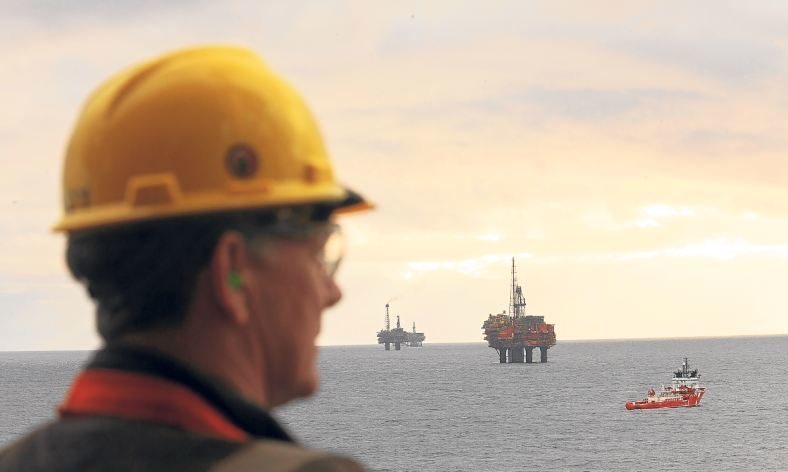 © Shell
© Shell The UK Government has approved Shell’s plans to remove the topsides for the iconic Brent Alpha, Bravo and Charlie platforms in the North Sea.
Brent is coming to the end of its life as a field after more than 40 years in production, with decommissioning for the huge Delta platform starting last year.
The plans for Alpha, Bravo and Charlie “have no bearing” on the issue of the huge platform legs, which Shell is seeking to leave in the North Sea.
Those will be subject to a separate decommissioning plan which will require approval from Ospar, a body which protects the north-east Atlantic marine environment.
Three of the four Brent platforms have now ceased production, with Brent Charlie to stop “in the near future”.
Removal of the topsides will be carried out through a phased programme of work, planned to be completed by about 2023.
Each will be removed through use of the single lift vessel Pioneering Spirit, which was used to remove the Brent Delta topside last year in a world lifting record.
The decommissioning programme states there are no other feasible options to reuse the platforms, and they would not be commercially viable for reuse for carbon capture and storage.
The Brent field lies around 115miles northeast of Shetland and started production in 1976.
It is the home of the benchmark standard for crude oil still used today.
Almost 400 wellbores have been drilled in the Brent field since 1974.
The campaign to “plug and make safe” has been ongoing since 2004, with all of the Brent wells currently being decommissioned in accordance with Oil and Gas UK guidelines.
Five of the 40 wells at Charlie, which is still producing, have been decommissioned so far.
